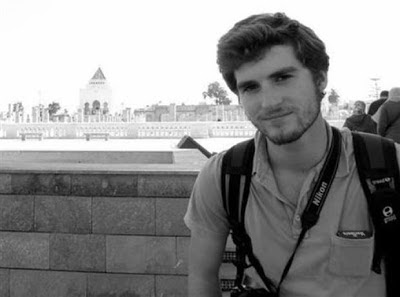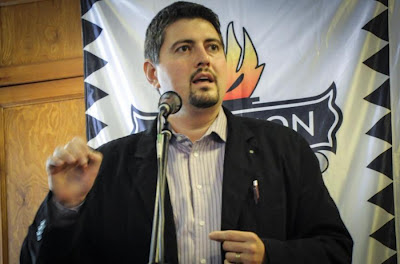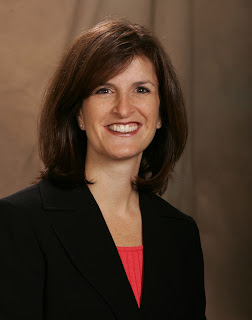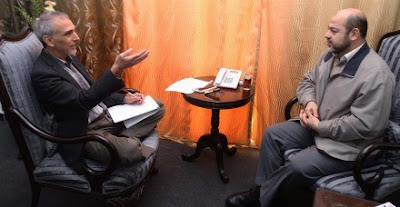Unfortunately, I think we’ll have to wait a while longer to get a good sense of how the Egyptian uprising and protests will affect Israel and her relations with neighboring Egypt. One interesting story that I’ve been following during the continued unrest in Egypt has been the role of Jewish people in the situation.
Category: Politics
How long until we say enough gun violence in our nation? These tragic events get the media coverage because they are the result of gun violence on a large scale, but there are horrific murders and suicides in our nation all the time which are the result of guns and bullets.
Earlier today I took part in a conference call for rabbis about the recent tragedy at Sandy Hook Elementary School in Newtown, Connecticut. Rabbi David Lerner, founder of Clergy Against Bullets, and Rabbi Jeffery Silberman, a chaplain and Director of Spiritual Care at Danbury Hospital in Connecticut (ten miles from Newtown), both spoke to the more than 100 rabbis on the call. There were Jewish texts that were cited, but ultimately the discussion turned to the need for comprehensive gun reform in our nation.
This evening I represented the local Jewish community at a candlelight vigil for the victims. The following are the words I spoke in an attempt to put the tragedy into perspective, bring healing and also encourage people that we must work to put an end to gun violence.
I have been asked to speak here this evening as a rabbi and as a representative of our Jewish community, however, I would not be fully honest if I didn’t tell you that I also stand here in my most important capacity – a Dad. As a father of two 1st graders I couldn’t help but look at the adorable faces of those children and think about my own children. This violent act was senseless, immoral, brutal and truly vicious. But it was not unspeakable. We, as God’s children, MUST speak about it.
In the portion of the Torah which Jewish people will read in synagogue this coming Shabbat, we hear the voice of Joseph asking if his father is still alive. After revealing himself to his shocked brothers, the first words out of his mouth concern his loved one and whether he is alive or dead. Last Friday, it was the other way around. It was parents asking if their child was still alive. With concern in their voice, they asked the question that no parent should ever have to ask.
In Judaism, we have a mitzvah, a commandment, from Leviticus 19:16 that says lo ta’amod al dam re’echa — You shall not stand idly by the blood of your neighbor. And I know this is a core ethical precept in all of our faith traditions. Just as we all share the value of Tikkun Olam, that we must all serve as God’s partners in making the world a better place, so too we must hold up the banner that we cannot stand by as our fellow humans, indeed our nation’s children, are being shot dead in school.
We are so much better than that. We have a responsibility to protect each other. To ensure that violence always loses out to peace. That life trumps death. We owe it to the kids who perished and to those who are back at school. We owe it to fellow parents and grandparents.
I don’t have an answer to the question of “where God was” at that school on that fateful day in Connecticut. None of us does. But we do have a mission in front of us. Let us work together so that tragedies such as this are relegated to the history books and our future will be so much brighter.As a tribute to the victims of this tragedy and to all who mourn, I offer this prayer written by my colleague Rabbi Naomi Levy:
Our hearts are breaking, God,
As our nation buries innocent children and brave teachers.
The loss is overwhelming.
Send comfort and strength, God, to grieving parents,
To siblings, family and friends in this time of shock and mourning.
Shield them from despair.
Send healing to the schoolchildren who are lost and frightened
Whose eyes witnessed unfathomable horrors.
Ease their pain, God,
Let their fears give way to hope.
Let their cries give way once more to laughter.Bless us, God,
Work through us.
Turn our helplessness into action.
Teach us to believe that we can rise up from this tragedy
With a renewed faith in the goodness of our society.
Shield us from indifference
And from our tendency to forget.
Open our hearts, open our hands.
Innocent blood is calling out to us to act.
Remind us that we must commit ourselves to prevent further bloodshed
With all our hearts and souls.
Teach us perseverance and dedication.
Let us rise up as one in a time of soul-searching and repair
So that all children can go to school in peace, God,
Let them be safe.God of the brokenhearted,
God of the living, God of the dead,
Gather the souls of the victims
Into Your eternal shelter.
Let them find peace in Your presence, God.
Their lives have ended
But their lights can never be extinguished.
May they shine on us always
And illuminate our way.
Amen.
While the conflict may seem like history repeating itself, social media is actually changing the way the public sees the violence. As several news agencies have reported,Israel is now using social networking sites like Twitter, Facebook, Flickr and YouTube to its advantage in its war with Hamas in Gaza. In the past Israel has had to rely upon mainstream news agencies to report on the back-and-forth actions in Gaza, but now the Israeli military and government can take its message straight to the people using its social networks.
As the LA Times reported today:
While Israel launched its surprise attack Wednesday on Gaza, it declared it to the world on Twitter, arguing its case for the new campaign against Hamas in less than 140 characters.
Minute by minute, the Israel Defense Forces fed followers information and arguments on the strike. At their computers, Internet users could click through aerial photos, check updates on the offensive and watch a YouTube video of the strike killing the Hamas military chief.
At one point, the Israeli military traded Twitter barbs with Hamas. “We recommend that no Hamas operatives, whether low level or senior leaders, show their faces above ground in the days ahead,” the @IDFSpokesperson account tweeted Wednesday.
The Hamas military wing tweeted back, “Our blessed hands will reach your leaders and soldiers wherever they are (You Opened Hell Gates on Yourselves).”
Social media isn’t new to the IDF, but the way it’s now using such sites as Twitter is new and will likely become the way nation-states will operate in military conflicts. It is clear that the chief spokesman of the IDF, Yoav Mordechai, believes that tweeting the operation in Gaza is a good weapon in its hasbara (public relations) struggle. Israel has always been challenged by negative PR in the mainstream media. Mordechai’s office even used Twitter to send a warning to its Hamas enemies, tweeting, “We recommend that no Hamas operatives, whether low level or senior leaders, show their faces above ground in the days ahead.” The IDF’s Twitter feed has been continually updated with news, pictures and videos from the front lines using the Twitter “hashtag” #PillarOfDefense. Perhaps the Cyber war really became a reality when Hamas’ military wing responded with return fire on Twitter, tweeting back, “You Opened Hell Gates on Yourselves.”
In addition to the IDF’s new found use of Twitter, sites like YouTube (operated by Google) have had to navigate their way through the new murky waters of whether the postings by the IDF of their military operations are deemed “kosher” according to its own terms of service agreement. Originally Google yanked a video posted by the Israeli military Wednesday, which showed the “pinpoint strike” that killed Hamas military leader Ahmed Jabari in his car. YouTube originally had a message on the removed video stating, “This clip has been removed because its content violated YouTube’s Terms of Service. Sorry about that.”
However, YouTube apparently changed its corporate mind and allowed the video to be shown. A company spokesperson explained, “With the massive volume of videos on our site, sometimes we make the wrong call. When it’s brought to our attention that a video has been removed mistakenly, we act quickly to reinstate it.” Most likely enough anti-Israel YouTube users had flagged the video triggering a review process until someone at YouTube could view the video in question and make the decision. By reinstating the video, YouTube opened up a whole new front in this war.
In taking the Middle East conflict to the Web, the opportunity for hacking has also been escalated. So it was no surprise early yesterday morning when a hacker group called “Anonymous” announced a mission to crash and deface websites belonging to the IDF, Israeli Prime Minister Netanyahu and other Israeli websites belonging to security and financial corporations. Using Twitter, the hacking group urged its followers to bring down more than 40 websites belonging to the Israeli government and military.
In a statement, the hackers stated, “We will do everything in our power to hinder the evil forces of the IDF arrayed against you. We will use all our resources to make certain you stay connected to the Internet and remain able to transmit your experiences to the world.” Already the hacker group has claimed to have taken down Israeli’s “top security and surveillance website.” They also released a “care package” with tools for staying online if the Israeli government cuts off Internet access in Gaza. Another hacker group called Telecomix posted a message online with instructions on how to use dial-up Internet to stay connect if the Web is shut down. According to Forbes.com, most of the Anonymous’ target websites were still online.
Another new front of the Middle East war in Gaza has been the public discourse on social networking sites. As soon as the conflict escalated advocates on both sides of the conflict began using Facebook to show their support. Pro-Israel supporters began simply updating their Facebook status with the Hebrew words עם ישראל חי (Am Yisra’el Chai) meaning “The nation of Israel lives.” Other Facebook and Twitter users reposted news reports of the direct hit on the Gaza leader and reminded their followers that the news coverage of the conflict has not accurate covered the escalation as thousands of missiles had already been fired into Israel from Gaza. Yesterday, in a show of support many users on Facebook began posting photos of IDF soldiers from visits to the Jewish homeland.
On Twitter, #Gaza and #Jerusalem have been trending off and on over the past few days and many heated back-and-forth conversations have taken place on the site. The IDF’s Flickr site has also seen a huge uptick in traffic with many users reposting photos from that stream to their own Pinterest boards. Additionally, the IDF’s Facebook page has noticed a sharp increase in fans approaching a quarter million. The IDF page’s recent status was “Shabbat Shalom from the IDF. We won’t be able to rest until we bring quiet to Israel.”
The long-simmering conflict between the Israelis and Palestinians will be the first test of the social media zeitgeist. Newspapers and television news outlets are still relevant, but this will go down as the first war that was also played out in real time on the Web. In the social media era, anyone and everyone can become a reporter. And the millions of vehement opinions will likely only raise the heat of this escalating conflict.
Cross-posted to the Jewish Techs blog at the Jewish Week
That in and of itself isn’t very newsworthy as antisemitism is still alive and well in Europe. What is newsworthy is the detail about his own history that Szegedi learned recently. He is the Jewish grandchild of Holocaust survivors. As Dave Pell, creator of NextDraft, wrote: “Mazel Tov, you idiot.”
After discovering his Jewish roots last December and going public about the discovery earlier this summer, the Hungarian politician met Hungary’s chief orthodox rabbi. Szegedi revealed this in an interview earlier this summer. The head of Jobbik, the far-right party with which Szegedi affliates, commemorated the 130th anniversary of the Tiszaeszlar blood libel, seen as one of the first anti-Semitic events in modern-era Hungary.
Szeged promised to step down from all party positions but hold on to his seat in the European Parliament. This story could end well however since Szegedi has promised to visit Auschwitz, where his grandmother had been held by Nazi soldiers. Perhaps, he’ll make the transformation of being an anti-Semite to helping to educate his Hungarian people about Judaism and the lessons of the Holocaust.
For mentioning the word “vagina,” Brown was blocked from speaking on the state House floor today as punishment. Her speech yesterday was addressing a controversial bill that would have further regulated abortions in Michigan. At the end of her speech, Brown said, “Finally Mr. Speaker, I’m flattered that you’re all so interested in my vagina, but ‘no’ means ‘no.'”
So today, the Speaker of House censured Brown, refusing her to participate in a discussion of a school employee retirement bill. The Speaker’s argument was that Brown’s use of the word “vagina,” which is the technical, medical term for a part of the woman’s anatomy was a violation of the Michigan State House’s policy on decorum.
What I found more interesting than Brown’s rejoinder to her Republican colleagues across the aisle that her vagina was off limits was Brown’s description of her kosher observance and a cogent explanation for Judaism’s treatment of abortion.
Rep. Lisa Brown referenced the talk by her colleague from Holland, Michigan who spoke about religious freedom. She then went on to speak personally about her own faith.
I’m Jewish. I keep kosher in my home. I have two sets of dishes. One for meat and one for dairy, and another two sets of dishes on top of that for Passover. Judaism believes that therapeutic abortions, namely abortions performed in order to preserve the life of the mother are not only permissable but mandatory. The stage of pregnancy does not matter. Wherever there is a question of the life of the mother or that of the unborn child, Jewish law rules in favor of preserving the life of the mother. The status of the fetus as human life does not equal that of the mother. I have not asked you to adopt and adhere to my religious beliefs. Why are you asking me to adopt yours?
Here is the video clip of Rep. Lisa Brown’s talk on the House floor yesterday.
Rep. Lisa Brown (a fellow Bloomfield Hills Andover High School and Michigan State University alum) gave a press conference today in Lansing following the House of Representative’s decision to ban her from speaking in today’s session. The video of her press conference is available here.
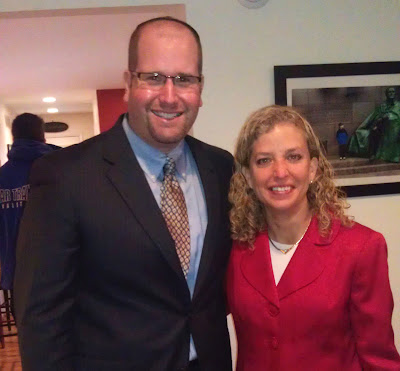 |
| Debbie Wasserman Schultz’s speaking engagement at a Miami temple was cancelled |
Rep. Debbie Wasserman Schultz, the chair of the Democratic National Committee, will speak this evening at Adat Shalom Synagogue in Farmington Hills, a suburb of Detroit. The congresswoman is speaking at the annual meeting of the Jewish Community Relations Council of Metropolitan Detroit. There hasn’t been any public opposition to Wasserman Schultz’s appearance, but this event is for a communal organization and is not connected to the synagogue.
| U.N. Ambassador Susan Rice’s appearance at a Boca shul this month was met with protests |
So, for Temple Israel in Miami it looks like some of their members are fine with vulgar and misogynistic rap lyrics sung from their bimah, but they’re not okay with a well-respected Jewish member of Congress speaking from their pulpit about the importance of the U.S.-Israel relationship.
It has now been close to thirty years since women began studying for ordination in Conservative Judaism. Within the Conservative movement, women rabbis have become commonplace and it is no longer an issue for the majority of Conservative congregations. The conversation has shifted from a halachic nature (Can a woman serve as a rabbi according to Jewish law?) to a more social nature (Are women rabbis treated fairly in the rabbinate?).
Truthfully, I never understood how women rabbis are problematic from a Jewish legal standpoint since there’s no problem with women serving as teachers, which is the main function of a rabbi. However, in the Orthodox world, the issue of women rabbis is still in its infancy with a minority of liberal Orthodox leaders like Rabbi Avi Weiss advocating for female rabbinic ordination. The first woman to be ordained by Rabbi Weiss, Rabba Sara Hurwitz, has been successful in her rabbinate but is far from being accepted by most Orthodox Jews.
Over the weekend, I read of support for women rabbis from a most unlikely source. In fact, I did a double take when I read the Jewish Daily Forward’s title for this article: “Hamas Chief on ‘Noble’ Women Rabbis”. Did the leader of Hamas, a known terrorist organization, really come out in favor of the ordination of women as rabbis and call women rabbis “noble”?
It turns out that the Jewish Daily Forward sent the husband (“Rebbetzman”?) of Rabbi Diane Cohler-Esses to Egypt to interview Hamas chief Mousa Abu Marzook over the course of two days before Passover earlier this month. This could have been a great story (Dayenu!) if it were only about a Jewish journalist in Egypt meeting face-to-face with the ruler of a foreign oppressor and trying to get out of Egypt before the holiday commemorating freedom from Egyptian bondage.
But the story gets much better. Journalist Larry Cohler-Esses is married to Rabbi Diane Cohler-Esses, a Conservative rabbi who was ordained from the Jewish Theological Seminary in 1995 and is the first woman from the Syrian Jewish community to become a rabbi (and the first and only person (male or female) from her community to become a non-Orthodox rabbi. She had to give her husband permission to fly to Egypt in the days before Passover to interview the Hamas leader. He was concerned about leaving home during the week of Passover preparation. She flippantly told her husband that he wasn’t much help anyway so he should go to Egypt.
In Egypt, during the two-day interview the two men discussed Passover in the 21st century:
Abu Marzook could not believe I was leaving Cairo so fast, or understand why I’d end up divorced if I didn’t. I explained about the Seder, and about Passover, when the Jews had to…well, leave Egypt really fast. He said, “But that was 4,000 years ago when the Pharaoh was trying to kill the Jews. No one’s trying to kill you now.”
“Actually,” I said, “kind of, you guys are.” And we were off on what ended up being a five-and-a-half hour discussion over those two days.
Surprisingly, what Mousa Abu Marzook was most fascinated with was his interviewer’s rabbi wife. When Cohler-Esses told the Hamas leader that his wife is a rabbi, Abu Marzook was astounded and asked, “There are women rabbis?” he asked.
Cohler-Esses explained to Abu Marzook that about one-half of all rabbinic students in the liberal American seminaries are actually women. He then explained his wife’s personal struggle in becoming a rabbi because of her roots in the Syrian Jewish community. The Hamas leader, whose Muslim religious beliefs treat women as second-class citizens, seemed dumbfounded that she hasn’t been accepted by her community. “She’s done nothing wrong,” he said. “What she’s done is noble.”
Obviously, the issue of women rabbis was only a side conversation in a long and serious interview by Cohler-Esses, who took a small dose of criticism by some for even meeting with a member of Hamas. But this story is amazing. Who would have ever thought that the most vocal proponent of women’s rabbinical ordination in the Orthodox movement might just be the leader of Hamas?
 |
| Natan Sharansky speaks at the 2012 Foundation for Jewish Camp Leaders Assembly |
It was Sunday, December 6, 1987. I was a 6th grade Jewish day school student and traveled with my mother aboard a chartered flight from Detroit to Washington. The late David Hermelin led the plane in singing for the entirety of the flight. Our Detroit delegation filled two planes and we were among the throngs of people who congregated on the National Mall to call for immediate mass emigration for Jewish refuseniks out of the Soviet Union.
Wearing a cheap white painter’s hat that read “Let My People Go” and eating my bagel and lox breakfast donated by Detroit philanthropist and supermarket owner Paul Borman, I marched from the Washington Monument to the Capitol Building singing “Hinei Mah Tov.” I remember hearing Vice President George Bush and Elie Wiesel speak. But the moment I will never forget is when Natan (Anatoly) Sharansky came to the dais to address his 250,000 supporters. It was impossible to decipher exactly what he was saying in his broken English, but I knew that he had spent years in prison and was now a free man on a mission. I remembered singing the words to the Safam song at my 5th grade Zimriyah, “They call me Anatoly. In prison I did lie. My little window looked out on the Russian sky.”
 |
| With Natan Sharansky in 2008 |
On Tuesday, as I listened to him speak about the immense growth of Jewish camping in the Former Soviet Union, I was taken aback by how far Sharansky has come since that cold December Sunday in 1987. Within 25 years, he has not only transitioned from the life of a prisoner to a free man, but he has seen and done so much. He made aliyah to Israel on the day he left his Soviet prison cell and then became the de facto leader of the Russian immigrant community in Israel, winning election to the Knesset after forming the Yisrael BaAliyah party. He published his memoirs, defeated Russian chess champion Garry Kasparov, and is now the Chair of the Executive of the Jewish Agency for Israel.
It is truly remarkable how Sharansky has ascended to leadership in a quarter century, but it is part of the larger story about Russian Jewry. It is a success story. There are large, successful Russian Jewish communities in Israel and throughout the United States (and in the FSU and Germany). There are campus Hillels throughout the FSU, Jewish summer camps are at full capacity in Russia and Ukraine with Jewish campers who learn they are Jewish only days before camp begins. Jewish synagogues of all denominations and community centers have sprung up everywhere in the FSU. There are Russian Jews who are leading the world in the sciences, in business and in medicine. Without a Russian Jew, we would have no Google (Sergei Brin) or PayPal.com (Max Levchin). Five Russian Jews have won a Nobel Prize since 1990. Yuri Foreman is a boxing world champion. There have been Russian Jews in the National Hockey League (Max Birbraer) and in the National Football League (Igor Olshansky). Their story is nothing short of miraculous.
 |
| With Natan Sharansky in 2012 |
Jewish students who graduated college last spring were born after the fall of Communism. They have no memory of the fight for Soviet Jewry. They don’t know about bar mitzvah twinning with Russian teens or the stories of smuggling Jewish books and matzah into the Soviet Union. They don’t know about adding a fifth question on Passover asking when will all Jews be free or leaving an empty seat at the Seder for the Soviet Jews who couldn’t celebrate the holiday.
As I sat listening to Natan Sharansky on Tuesday, a friend and I reminisced about writing letters to President Reagan on behalf of our Soviet Refusenik brothers and to our Russian pen pals who weren’t allowed to learn Hebrew or sing Jewish songs. Twenty five years after that memorable march for Soviet Jewry in Washington, it is imperative we keep telling that story and I am grateful to Natan Sharansky for keeping his story alive after these many years.
On the final morning of the AIPAC conference, the U.S. Secretary of Defense Leon Panetta discussed his close personal friendship with former Israeli Prime Minister Ehud Barak and the family dinners they have shared (“We talk, we argue, we eat… we are family”). He also recalled accompanying President Bill Clinton to Israel for the funeral of Yitzhak Rabin in 1995. Panetta also disclosed that the first congratulations he received after the successful capture of Osama Bin Laden in Pakistan were from his buddies in the Israeli Mossad.
And then Secretary Panetta mentioned the little known fact that he and Sen. Chuck Schumer of New York were once roommates when they both served in the House during the 1980’s and early 1990’s. That wasn’t the surprise though since Schumer has, on several occasions, reminisced about rooming with Panetta and other congressmen in a shared house. The surprising tidbit came when Panetta shared that he and Schumer bunked together in the living room of the house and before bed each night Schumer would get Panetta to say the Bedtime Shema.
Panetta deadpanned toward the end of his speech, “Each night before we went to bed he made me say the Shema… but I probably just said a Hail Mary!”
I was never aware that there is a custom of Jews getting non-Jews to say the Shema. I wrote about Justin Bieber’s manager Scooter Braun getting him in the habit of reciting the Shema before each concert and now this. I’m curious to know which other non-Jews out there are saying the Shema. This might just become a trend.
Here’s video of Chuck Schumer reminiscing about his former roommate Leon Panetta:
